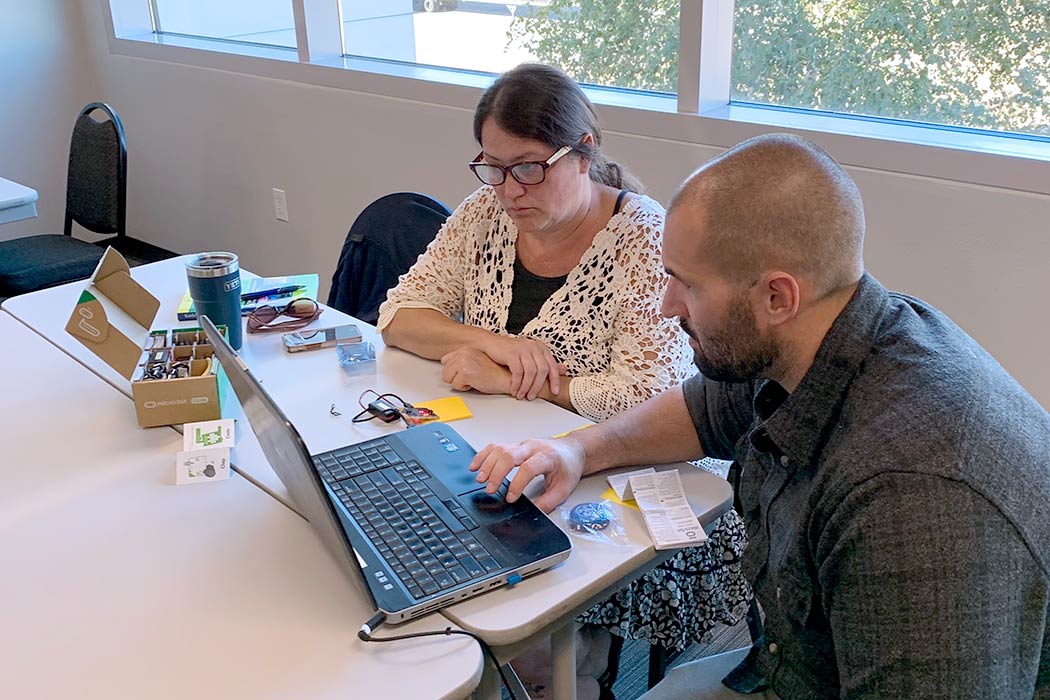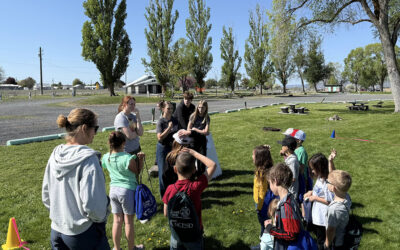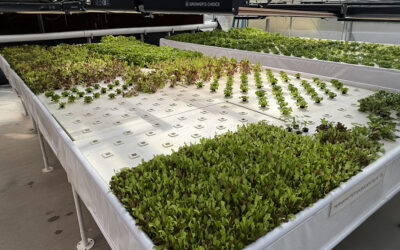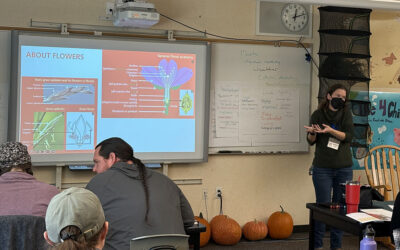On October 10, 2024, third through eighth grade teachers gathered for an engaging workshop hosted by NCESD staff members Cari Haug (Regional Science Coordinator), Stefan Troutman (Educational Technology Specialist), and Andy Boyd (Regional Math Coordinator). This event, inspired by a similar program from ESD 105 led by Luke Matlack and Mike Batali, introduced participants to computational thinking strategies that enhance student learning in science, math, and computer science.
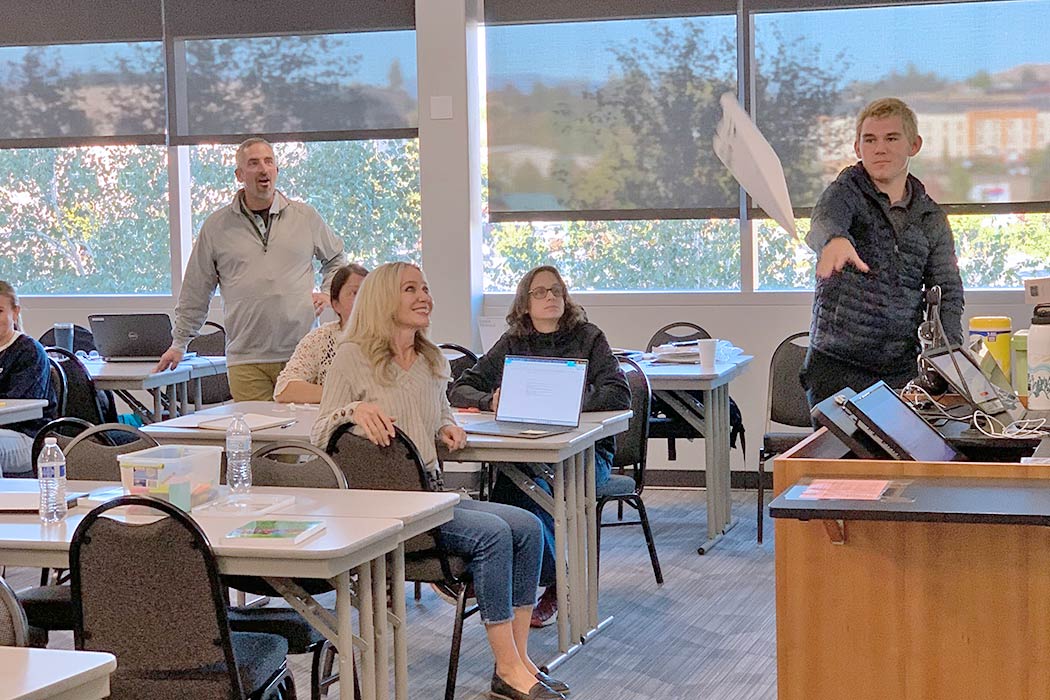
The day kicked off with hands-on activities that brought computational thinking to life using paper airplanes. This simple, low-tech approach helped teachers grasp key concepts of this problem-solving framework, illustrating how it can support student sensemaking across different subjects.
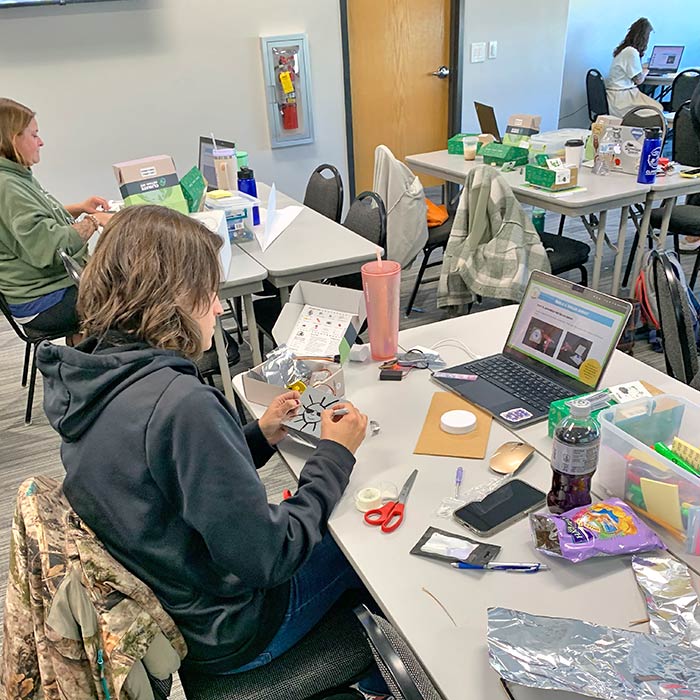 Next, teachers delved into coding using Micro:bits—programmable devices designed for ease of use and integration into the classroom. After experimenting with the Micro:bits, participants left the workshop equipped with a ten-pack set of these devices, ready to implement their new coding skills with their students. The session was filled with smiles as teachers successfully programmed their Micro:bits.
Next, teachers delved into coding using Micro:bits—programmable devices designed for ease of use and integration into the classroom. After experimenting with the Micro:bits, participants left the workshop equipped with a ten-pack set of these devices, ready to implement their new coding skills with their students. The session was filled with smiles as teachers successfully programmed their Micro:bits.
In the second half of the workshop, participants combined their new coding abilities with the Climate Action Pack, an educational toolkit focused on environmental challenges. The group worked on creating a solar array that could track and follow a light source, simulating the sun-seeking behavior of solar panels. This project, along with other tools and sensors in the pack, provided teachers with a rich resource for addressing climate change topics like renewable energy, agricultural innovations, and pollinator conservation in their classrooms.

